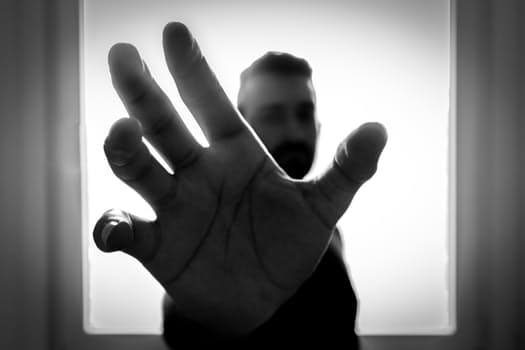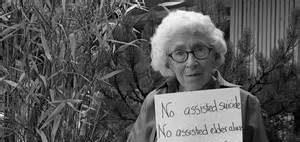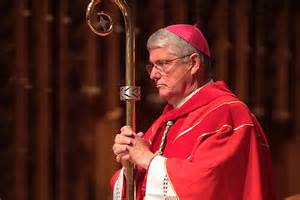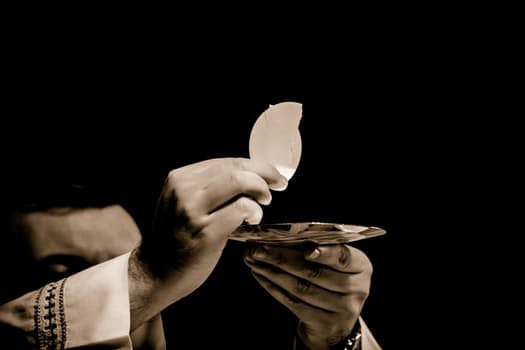
By Rev. Fr. Boulet, SSPX
The decriminalization of doctor assisted suicide in Canada by the Trudeau government has exposed the deep divisions that exist within the Catholic Church in Canada. In its 2015 decision in Carter v. Canada, the Supreme Court of Canada found the Criminal Code provision that prohibited physician assisted suicide to be unconstitutional. The Liberal government’s Bill C-14, which received Royal assent in June 2016, decriminalized the practice and set out a regime to regulate who could obtain “medical assistance in dying”.
 In response to the new law, the Catholic bishops of Alberta and the Northwest Territories issued a document entitled “Guidelines for the Celebration of the Sacraments with Persons & Families Considering or Opting for Death by Assisted Suicide or Euthanasia” in which they instructed priests under their jurisdiction to deny the Sacraments of Confession (Penance) and Extreme Unction (Anointing of the Sick) and a Catholic funeral, in certain circumstances, to an individual who helped someone die or who died themselves by assisted suicide.
In response to the new law, the Catholic bishops of Alberta and the Northwest Territories issued a document entitled “Guidelines for the Celebration of the Sacraments with Persons & Families Considering or Opting for Death by Assisted Suicide or Euthanasia” in which they instructed priests under their jurisdiction to deny the Sacraments of Confession (Penance) and Extreme Unction (Anointing of the Sick) and a Catholic funeral, in certain circumstances, to an individual who helped someone die or who died themselves by assisted suicide.
Cardinal Gerald Lacroix of Quebec City and Archbishop Christian Lepine of Montreal both reacted differently to the new law, declaring that they would not give specific guidelines to their priests about refusing the funeral services to the people who requested assisted-suicide. “The Catholic Church accompanies people in every step of their life,” said Cardinal Lacroix, “We do that in dialogue with every person and every family that wishes to be accompanied.”
Bishop Douglas Crosby OMI, the bishop of Hamilton and president of the Conference of the Catholic Bishops of Canada (“CCBC”) strongly criticized Bill C-14, stating on behalf of the CCCB: “Physician-assisted suicide is an affront to what is most noble, most precious in the human endeavour and a grave injustice and violation of the dignity of every human person whose natural and inherent inclination is indeed the preservation of life.” Despite those strong words, Bishop Crosby indicated that he did not “foresee that the CCCB will be putting out guidelines” setting out a uniform response from the Catholic Church in Canada to the new law.
the human endeavour and a grave injustice and violation of the dignity of every human person whose natural and inherent inclination is indeed the preservation of life.” Despite those strong words, Bishop Crosby indicated that he did not “foresee that the CCCB will be putting out guidelines” setting out a uniform response from the Catholic Church in Canada to the new law.
How is it possible that the bishops of Canada disagree on fundamental issues such as whether individuals involved in assisted suicide can receive certain Sacraments and a Catholic funeral?
The answer to that question can be traced back to 1968 when the Canadian Bishops published the infamous “Winnipeg Statement” in which they willingly distanced themselves from the teaching of Pope Paul VI’s Encyclical Letter Humanae Vitae that condemned artificial contraception. While the Winnipeg Statement did not officially reject the teaching of Pope Paul VI, it rendered it practically void by leaving the ultimate decision on contraception to the dictates of the private consciences of the couple, instead of the objective moral law.
The Winnipeg Statement deeply weakened the Canadian Bishops, who are now found often divided and powerless to oppose to the agenda of the culture of death.
 As secularism spreads more deeply throughout our society, we need strong leaders who will clearly reaffirm the Law of God without compromise.
As secularism spreads more deeply throughout our society, we need strong leaders who will clearly reaffirm the Law of God without compromise.
Let us pray that the good Lord will grant us courageous shepherds who will not be afraid of the wolves, but rather will bear witness to the Faith they received a mandate to uphold on the day of their consecration!
By Rev. Fr. Boulet, from the Society of Saint Pius X
Fr. Boulet is pastor of the Church of the Transfiguration, Etobicoke (Toronto), Ontario.
